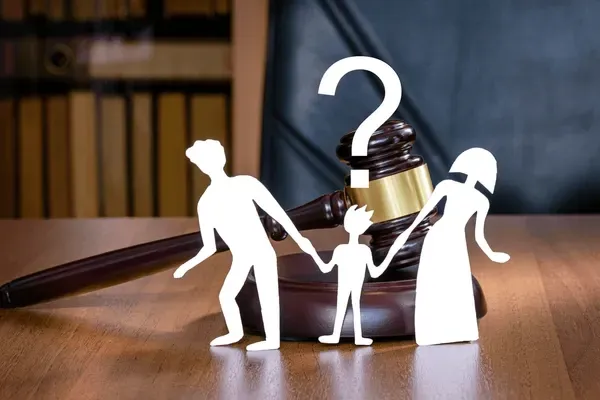Do I Need a Lawyer for My Child Support Claim?
How to File a Support Claim for Child Support in North Carolina

Following the end of a marriage or a relationship, the biggest point of contention most former couples face is child custody and support. Although the parties can settle the matter without consulting a lawyer, it’s usually advisable to seek an expert’s assistance to make sure the child’s interests are protected. But before examining in more detail how an attorney can help in child support claims, let us look into North Carolina child support laws.
How North Carolina Child Support Laws Work
Contrary to a popular misconception, child support isn't always paid by the father. Instead, North Carolina’s child support laws put the obligation on the non-custodial parent, regardless of gender. In other words, a mother can also be ordered to pay child support if the child’s primary caretaker is the father.
Moreover, marriage is not a requirement for child support claims. Even if a couple was never married, the custodial parent has the right to demand child support from their former partner. However, before such claims are approved, paternity needs to be established in court. Typically, the father must acknowledge that the child is his by signing a form or providing the child’s birth certificate. Nevertheless, some cases may require medical proof of paternity. If the couple was married, establishing paternity isn’t necessary.
Child support can be paid only once the child is born, meaning that the court will reject claims made during pregnancy. However, regular laws apply after birth, requiring the non-custodial parent to pay monthly sums until the child turns eighteen or graduates high school — whichever comes last.
How North Carolina Child Support Is Calculated
In North Carolina, courts use child support calculators to determine the monthly sum the non-custodial parent must pay for their child’s upbringing. Parents should enter the number of children, monthly income, custody schedules, child support responsibilities, and the costs of health insurance, childcare, special needs, and transportation. The final number shown by the calculator is the amount the judge will require for child support.
Although the child support amount is usually calculated using this method, there are certain exceptions. For instance, if both parents’ income taken together exceeds $30,000 a month or $360,000 a year, different rules apply. In addition, parents without a stable monthly income may require special consideration, as the calculator may not be able to accurately calculate their child support obligations.
If necessary, the child support amount can be modified when one of the parents submits a petition. However, there are two requirements: the difference between the owed and received sums needs to be at least 15%, and three years have to pass from the previous child support order.
Even if these two conditions aren’t met, the court might consider approving the request in case it discovers changes in the child’s needs, the parent’s income, or physical custody. However, the parent must petition the court, as there are no automatic reviews in place.
How to Request Child Support
Requesting child support is often part of a larger lawsuit related to custody, equitable distribution, or spousal support. In such a case, it’s advisable to hire a lawyer who can handle various aspects of the lawsuit and ensure the best possible outcome.
However, if child support is the only dispute the parent is taking before the court, they can request the assistance of Child Support Services. This agency, registered under the Department of Health and Human Services, can open your case in a local court, help you locate the non-custodial parent and establish parentage, and obtain and enforce child support orders. In other words, Child Support Services can largely replace lawyers in this process.
Still, there are some limitations to what Child Support Services can do. Namely, the agency can only deal with child support — nothing else falls under its jurisdiction. For any other issues with visitation rights or custody, the parents in North Carolina must contact a lawyer if they require assistance.
Whether the custodial parent is using Child Support Services or working with a lawyer, they should obtain details about the non-custodial parent to support the claim. That information includes:
- The address
- Telephone number
- Employer’s name and address
- Social security number
- Bank information and income
- Tax return
Once the custodial parent gathers the necessary details, they should enter them into child support worksheets and submit them to the court.
The Consequences of Refusing to Pay Child Support
Once a child support order is in effect, the non-custodial parent has an obligation to pay the required sum regularly. If they refuse to do so, the judge may enforce the order by demanding that their tax refunds are intercepted and wages withheld. Moreover, the non-custodial parent may lose their driver’s and professional licenses and even have their passports denied when traveling.
Final Thoughts
Although parents aren’t legally required to consult a lawyer when making a child support claim in North Carolina, the process of obtaining an order is much easier if they do. Alternatively, they can get the assistance of Child Support Services, especially if child support is the only issue between the former spouses that needs resolving. Ultimately, it all depends on the claimant’s specific needs, and both options are worth considering.
When it comes to navigating family law issues, understanding grandparents' visitation rights in Wilmington, NC is crucial, especially in the context of child support claims. While the focus may often be on immediate parental obligations, the role of grandparents can significantly impact a child's well-being.











